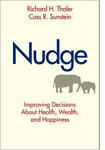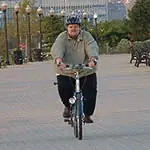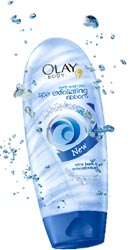Possible book club read.
--pws
books: Reading between the lines.
Taming Your Inner Homer Simpson - How to opt out of our own stupid choices.
article By Dahlia LithwickPosted Monday, May 12, 2008, at 7:03 AM ET 
The real trick to understanding how to approach Nudge: Improving Decisions About Health, Wealth, and Happiness, the new book by Cass R. Sunstein and Richard H. Thaler, lies in recognizing the limitations of your inner Homer Simpson. In the authors' view, your whole brain is a civil-war zone between your "automatic system" (the rapid, intuitive, reptilian part) and your "reflective system" (the slow, deliberate, self-conscious part). Behavioral economists take the position that snap judgments formed by your Homer Simpson brain are often quite terrible ones, which go on to have enormous consequences in your financial, physical, and emotional life. Like Homer, we use all sorts of mental "heuristics" or cognitive "rules of thumb" that are flawed, which is why we pay for magazine subscriptions for years after the three-month "free" trial ended ("status quo bias") and why we buy lottery tickets ("unrealistic optimism").
The premise of Nudge—the authors caution in their very first footnote that this is not to be read as noodge (noun: from the Yiddish, meaning, "You never call; you never write. ...")—is that in framing public policy, "choice architects" should gently guide us to make better choices, the sorts of choices Albert Einstein or Star Trek's Mr. Spock* might make or that we would make if we were to consult such men on our personal decisions about, say, giving up smoking. Laissez faire economics holds that faced with a broad menu of choices, most of us will choose wisely. Sunstein and Thaler fear that some of us might pull a Homer Simpson and try to eat the menu.
Now, nobody appreciates being compared to Homer Simpson, but isn't that really the whole point? Sunstein and Thaler are very persuasive in illustrating how often we channel him in our daily decision-making. In fact, your automatic system may reveal your own biases with respect to this book: While your Homer Simpson brain might leap to the conclusion that any book by a University of Chicago economist and a law professor—Sunstein is about to become a Harvard law professor—might be hopelessly dry, that could just be a mistake of the so-called "availability heuristic" (assessing the likelihood of an outcome based on the examples that come most readily to mind). But Nudge is actually great fun to read. And while your reptilian mind might balk at their language of "libertarian paternalism"—even the authors concede the words are "off-putting" if not "contradictory"—your reflective mind may have to concede that there's something to be said for gently guiding children to eat fruit in the cafeteria or inducing workers to sign up for their 401(k) plans, so long as nobody is being coerced and the Oreos are merely moved to a higher shelf, not banned. In some ways the whole project involves resetting the default buttons of your life to healthy and wealthy and wise. Of course someone else is doing the resetting, and that is where the problem lies.
You will not like the version of yourself you meet in Nudge. For one thing, you eat too many cashews, long after you stopped wanting one. (You will also eat squeaky, stale popcorn even if you hate it.) Problem blackjack players (like, er, myself) will play more recklessly with the "house money" you have just won. You are hopelessly enslaved to the judgments (even the wrong ones) of others. You believe everybody knows (and cares) which T-shirt you are wearing. You pay insane fees on your credit cards and don't contribute to your 401(k) even though you know you should. You claim to want to be an organ donor yet somehow find checking the box on your driver's license to be beyond you.
One way you may soothe your Homer Simpson mind is by patiently explaining to it that he is not only stupid, but that public-policy decisions made to get around him are already quite common: Sunstein and Thaler tell us that Chicago's Lake Shore Drive features white stripes on the most dangerous parts of the road that offer drivers the illusion that their speed is increasing. Drivers slow down. An Amsterdam economist had black houseflies etched into the wells of the urinals at Schiphol Airport under the theory that "If a man sees a fly, he aims at it." Spillage decreased by 80 percent. Some of these suggestions for libertarian paternalism in savings have already been enacted into law. Automatic enrollment is becoming the norm for 401(k) plans. In 2006 Congress passed the Pension Protection Act, which offers employers incentives to match employee contributions and resets certain enrollment defaults to maximize contributions. And the ATM beeps to remind you that you've walked away without your bank card.
Is it oh-so-slightly creepy (or socialist) to envision a world in which shadowy choice architects are nudging you away from the cashews and toward organ donation? Could those seniors who understood all 46 options offered in President Bush's prescription drug plan please raise their hands?
If Sunstein and Thaler are right that we live in a world of too many choices, with insufficient time and information to make the best one and little feedback about the stupid choices we've made in the past, the question is not so much whether we should be steered toward the smart ones as: Where should we be steered instead? Given that someone someplace is often setting the defaults anyhow, wouldn't we prefer that the guy in charge be Mr. Spock? Could any of us agree, however, about which Mr. Spock is truly worthy of making these decisions? The authors urge that "if the underlying decision is difficult and unfamiliar, and if people do not get prompt feedback when they err, it's legitimate, even good to nudge a bit."
Some of the suggestions will generate controversy, particularly when one contemplates some wise decision-maker who is resetting our defaults, in secret, or producing the summary sheet of the best schools for our children. And although the nudges in question are often referenced as "small" or "gentle" or "non-coercive," there are certainly moments at which a nudge turns into a full-on body check, particularly when you contemplate the government becoming involved. The authors toss out ideas about privatizing marriage, allowing patients to waive the right to sue their physicians, paying teen girls not to get pregnant. And my own favorite suggestion may well be a "civility check" warning you that the e-mail you are poised to send "APPEARS TO BE AN UNCIVIL E-MAIL. DO YOU REALLY AND TRULY WANT TO SEND IT?"
As the child of an economist, I must confess that there was a part of me that wanted to push back against the message that animates Nudge, i.e., that every time I think I am picking the best health plan for my children, Homer Simpson is actually just reaching for the double-glazed chocolate doughnut. I want to believe I am smarter than that. But you see that, too, is a product of my reptilian brain. As Sunstein and Thaler explain, another common cognitive error is the heuristic called "optimism and overconfidence." It's what leads more than 50 percent of Thaler's MBA students to predict they will all perform in the top two deciles of their class and allows 94 percent of professors at large universities to believe themselves better than the "average professor." In other words—painful though it may be to admit—the mere fact that we believe ourselves smart enough to optimize complicated choices may be the most Simpsonic thing about us. I know: D'oh!










